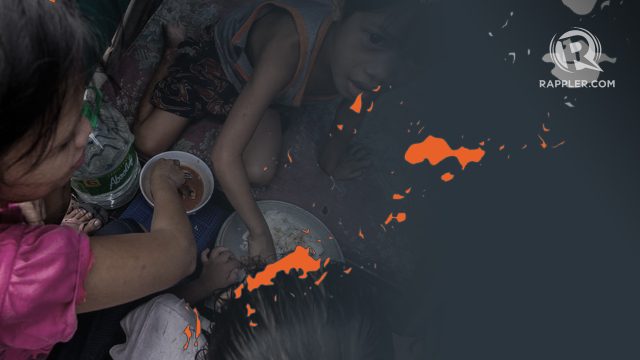SUMMARY
This is AI generated summarization, which may have errors. For context, always refer to the full article.

MANILA, Philippines – A security measure in reaction to criminal activity is taking effect – just not the one desired.
The Malaysian government’s suspension of barter trade in Sabah’s east coast is meant to curb criminal activity in the area between the country, Indonesia, and the Philippines but it has also resulted in a spike in the prices of food and other necessary goods.
One group, the Lupah Sug Bangsamoro Women Association Incorporated, is calling on the Malaysian government to end the blockade, and return to multilateral efforts to police the region.
Lupah Sug Bangsamoro Women Association Incorporated, one of International Alert Philippines’s partners, released a statement arguing against Malaysia’s actions, describing them as “a perverse application of beggar thy neighbor policies.”
“This decision is arbitrary, counter-productive, and will not bring about a long-term solution to the problem of criminal terrorism that Malaysia and the Philippines both face,” the group warned.
It cited the already worsening situation in Mindanao, especially the growing food insecurity it has caused.
According to the group, prices of food and petroleum have already surged by 70%.
When access to Sabah was still open, Filipinos living in Tawi-Tawi and Sulu would get their supplies there because it was closer compared to mainland Mindanao.
The group cautioned the Malaysian government against continuing with the current policy, saying it will have “deep economic and social repercussions to the already strained condition in Mindanao brought about by the drought and the energy crisis.”
“Worse, the competition over local and more expensive resources will have ominous implications to existing grievances and conflict dynamics in the Sabah-Sulu corridor,” they told Malaysia.
The group appealed to the Philippine government to have a “dialogue with Malaysia to take collaborative and nuanced actions to address security and economic issues in its shared borders.”
“By closing its borders, Malaysia succumbs to the fear and threat of criminal extremism that the perpetrators wanted to create, a threat that should unite rather than tear us apart,” they said.
The region between the Malaysian, Indonesia, and Philippine borders has been the frontline in the battle against terrorism and criminal activity.
On April 2, gunmen believed to be members of the Abu Sayyaf group kidnapped 4 Malaysian ship crew off the east coast of Sabah state where the militants are known to operate.
Aside from terrorist activities, there have also been cases of human trafficking in the area.
Food insecurity in Mindanao
Even before the blockade, many in Mindanao have already gone hungry.
The farmers’ protest in Kidapawan revealed the already critical conditions people in Mindanao faced. The effects of the drought served as the straw that broke the Kidapawan farmers’ back. (READ: Kidapawan and the rice riots)
In Bukidnon, sugarcane farmers are forced to borrow from stores, with 47% of them swimming in debt. For those who have land to till, it is not enough; those who do not, have to work in the haciendas. (READ: Bukidnon: Many farmers hungry, mired in debt)
It becomes worse in places where there is conflict, which affects the 4 dimensions of food security: physical availability, economic and physical access, utilization, and stability throughout time.
In times of crisis displacement and the breakdown of some systems lead to the absence of services, including food.
Now cut off from a reliable source of food, where will the people of Sulu and Tawi-Tawi turn? – Rappler.com
Add a comment
How does this make you feel?
There are no comments yet. Add your comment to start the conversation.